Commercial business drives the pulse of the economy, operating to generate profit through selling goods or services while shaping industries and communities. South Coast Improvement serves as a valuable partner for businesses pursuing success in competitive markets, particularly in construction and tenant improvement projects.
This blog will explore the various types of commercial businesses, essential strategies for growth, and the unique advantage South Coast Improvement offers with its industry-leading expertise and Design-Build service package.

Photo by Hunters Race on Unsplash
Introduction to the Business World
The business world is a complex and dynamic environment that encompasses a wide range of commercial businesses, from retail and manufacturing to service-based companies. These businesses operate within the framework of commerce and trade, with the primary aim of generating profits and creating value for their owners or shareholders.
Commercial businesses focus on profitability, achieved through the sale of goods and services, effective risk management, and strategic decision-making. Commercial real estate, including office spaces, retail locations, and industrial properties, plays a crucial role in providing a platform for companies to operate and grow. These properties are essential for daily operations and long-term business development.
Financial markets, including options and futures markets, are vital for commercial businesses. They offer tools for managing risk, securing funding, and making informed investment decisions. Liability coverage is another critical aspect, protecting companies from potential losses and risks associated with their operations.
Navigating competitive markets requires businesses to stay agile and responsive to changing market conditions. Success depends on their ability to manage risks, capitalize on growth opportunities, and adapt to new challenges. By understanding these dynamics, commercial businesses can create sustainable value and achieve long-term success.

Photo by Charles Forerunner on Unsplash
What Defines a Commercial Business?
At its core, a commercial business engages in general business activity, including financial transactions, production processes, and the delivery of goods and services. These businesses often offer career growth opportunities through various functions and educational programs, encouraging personal development and innovation.
The primary objective is to generate profit while meeting customer needs. Whether it’s retail outlets, service providers, or manufacturing giants, understanding their structure and operations is vital for competing effectively.
Why Understanding Commercial Business Types Matters
Knowing the types of commercial businesses equips entrepreneurs, investors, and organizations with insights to identify growth opportunities. From manufacturing to commercial real estate and financial markets, these categories hold unique challenges and benefits worth exploring.
Commercial Real Estate: A Cornerstone of Business Growth
Commercial real estate encompasses the leasing, buying, and selling of properties like office spaces, retail stores, and restaurants. Various costs are associated with commercial real estate, including liability and defense, property restoration, and building out office space. It is a vital sector that helps facilitate business operations while offering lucrative opportunities for investors.
How Businesses Leverage Commercial Real Estate
- Leasing and Operations: Office spaces and storefronts enable companies to conduct daily business efficiently.
- Investment for Income: Investors profit through rent or appreciation from commercial properties.
- Auction Opportunities: Transparent bidding processes at auctions open doors to innovative investment opportunities.
South Coast Improvement helps businesses maximize their real estate value by aligning construction projects with both immediate and long-term goals. From tenant improvements to complete rebuilds, our expertise ensures spaces are designed for efficiency and profitability.

Photo by Mike Kononov on Unsplash
Business Operations in Commercial Enterprises
Commercial businesses engage in a variety of operations, including production, manufacturing, and trading activities, all aimed at generating revenue and creating value for their owners or shareholders. Effective financial management is crucial, encompassing securing funding, managing cash flow, and mitigating operational risks.
Commercial real estate is a cornerstone of business operations, providing the necessary infrastructure for companies to operate and expand. Tenant improvements, such as renovations and upgrades, can significantly enhance the value of commercial properties, attracting new customers and employees and improving overall business efficiency.
Compliance with regulatory requirements and laws, including those related to employment, taxation, and environmental protection, is essential for the smooth operation of commercial businesses. Strategic decision-making about investments, expansions, and risk management is a key aspect of business management.
Building strong relationships with customers, employees, and suppliers is fundamental to ensuring long-term success and growth. Additionally, the use of technology, including digital tools and platforms, can enhance the efficiency and effectiveness of business operations, enabling companies to stay competitive in a rapidly evolving market.

Photo by Pedro Lastra on Unsplash
Financial Markets and Their Role in Commercial Success
Financial markets are critical for businesses, unlocking access to capital through trading activities, options and futures markets, and derivatives contracts. Finance plays a crucial role in managing accounting, customer billing, and collections within commercial businesses. Companies use these tools to hedge risks, secure assets, and boost profits.
Businesses that thrive in competitive markets understand how to utilize financial markets for strategies such as funding expansion, managing cash flow, and mitigating risks. South Coast Improvement ensures our clients’ financial investments in construction projects remain cost-effective and aligned with market trends, reducing unforeseen expenses.
Raising Capital for Commercial Ventures
Commercial businesses require funding to launch and grow their operations, which can be secured through various means, including loans, investments, and crowdfunding. Developing a solid business plan and financial projections is essential to attract investors and secure the necessary funding.
Effective cash flow management is critical, enabling businesses to meet their financial obligations and invest in growth opportunities. Commercial real estate can serve as collateral to secure loans and funding, providing a tangible asset that lenders can rely on.
The use of derivatives contracts, such as options and futures, can help commercial businesses manage risk and secure funding for their operations. Companies must also consider the tax implications of their funding decisions and ensure compliance with regulatory requirements.
Building a strong network of investors, lenders, and partners can provide commercial businesses with access to funding and expertise. The ability to adapt to changing market conditions and pivot when necessary is essential for securing funding and achieving long-term success. By leveraging these strategies, commercial businesses can effectively raise capital and drive sustainable growth.
Key Characteristics of Commercial Businesses
Commercial businesses share several defining traits that set them apart from other organizations, including non-profit entities. These characteristics include:
- Profit Orientation: Revenue generation is at the core of every commercial operation.
- Market Adaptability: Success depends on staying agile to shifting consumer demands and economic conditions.
- Strategic Collaborations: Building relationships with contractors, suppliers, and partners is fundamental.
- Efficiency: Being efficient in delivering cost-effective solutions and improving internal workflows is crucial for commercial businesses.
South Coast Improvement excels here, acting as a true partner in the commercial construction landscape. Our 90% repeat business rate demonstrates our commitment to staying aligned with our clients’ evolving business needs and objectives.

Photo by Nastuh Abootalebi on Unsplash
Effective Business Strategies for Sustained Growth
To remain competitive, businesses must adopt strategies that resonate with shifting market conditions and customer preferences. Key strategies include:
- Market Research – Identifying customer pain points to develop tailored products and services.
- Product Development – Innovating and improving offerings to stay relevant.
- Employee Training – Skilled personnel are pivotal for sustained success.
Having a supportive team enhances individual growth and enables efficient processes throughout the company.
South Coast Improvement offers more than just construction services. By employing our Design-Build model, we provide seamless end-to-end service that enhances project efficiency and eliminates costly delays caused by miscommunication between design and construction teams. This model creates absolute accountability to streamline execution, saving our clients both time and money.
Other Types of Businesses and Learnings
Beyond commercial businesses, non-profit organizations and government agencies offer invaluable lessons. Their focus on service over profit emphasizes community engagement and long-term impact.
Nonprofits operate non-commercially, prioritizing service and community benefits over profit. Charities, nonprofit organizations, and governmental agencies typically fall under this noncommercial category, contrasting them with privately owned companies that are classified as commercial.
Social enterprises and cooperatives also show how to balance profit generation with ethical considerations. Forward-thinking commercial businesses can incorporate these principles into their operations to win customer trust and contribute to broader societal goals.
For instance, South Coast Improvement integrates social responsibility within our projects, ensuring compliance with environmental regulations and delivering sustainable construction solutions.

Photo by Swapnil Potdar on Unsplash
The Importance of Legal Structures in Commercial Businesses
Legal structures impact liability coverage, tax implications, and growth potential. Common structures include:
Understanding these structures is crucial for making the right operational decisions. At South Coast Improvement, we go beyond providing physical upgrades to spaces; we ensure that our projects are aligned with the specific compliance and legal requirements of the businesses we serve.
Real-World Examples of Commercial Enterprise
Some examples of successful commercial businesses include restaurants, retail stores, and service providers. For example, a car maker needs materials for production, while charities operate differently from for-profit companies. These enterprises deliver solutions that directly cater to customer needs while remaining flexible.
At South Coast Improvement, our portfolio is a testament to our ability to meet the unique demands of such businesses. From transforming dining spaces to improving facilities for service providers, every project underlines our adaptability and commitment to client satisfaction.
Key Success Stories
- Atria Merrimack Place ($18 Million Project)
- Fresenius Kidney Care ($1.6 Million Project)
- Equity Residential Roof Deck ($1.5 Million Project)
Unveiling the Impact of Commercial Businesses
The impact of commercial businesses extends far beyond their own operations. They:
- Drive economic growth by creating jobs and generating revenue.
- Contribute to community development through social responsibility initiatives.
- Accelerate technological advancements and innovation.
Commercial activities intersect with everyday life and economic interactions, influencing decisions and experiences on a daily basis.
However, businesses must address challenges such as environmental impact and sustainable growth. South Coast Improvement prioritizes these aspects, bringing both premium construction services and socially responsible solutions into every project.

Why South Coast Improvement Is Your Business Partner
Commercial businesses face plenty of challenges—but finding the right partner for construction and tenant improvement projects shouldn’t be one of them. With a Design-Build Service Package, South Coast Improvement offers single-source accountability that guarantees streamlined planning and execution.
Our approach ensures that all stakeholders remain aligned, reducing miscommunication and maximizing value delivery. The results? Top-quality construction projects completed on time, tailored to meet your specific business goals.
Take the Next Step
With a track record of 90% repeat business and award-winning professionalism, South Coast Improvement is the partner you need for your next construction project.
Contact us today to discuss how we can help your commercial business transform its spaces for success.
View Our Work
Aspen Dental
Partnering with The Aspen Group on the construction of a new Aspen Dental facility that’s functional & welcoming for patients & staff alike. South Coast Improvement Company was awarded the construction of a new Aspen Dental facility in Killingly, CT. The...
Springhouse Senior Living – HumanGood
Designed to enhance comfort & functionality. South Coast Improvement company was hired by HumanGood for an interior and exterior renovation at Springhouse Senior Living. Our skilled teamtransformed the 2nd through 5th floor common areas into brighter, more...






